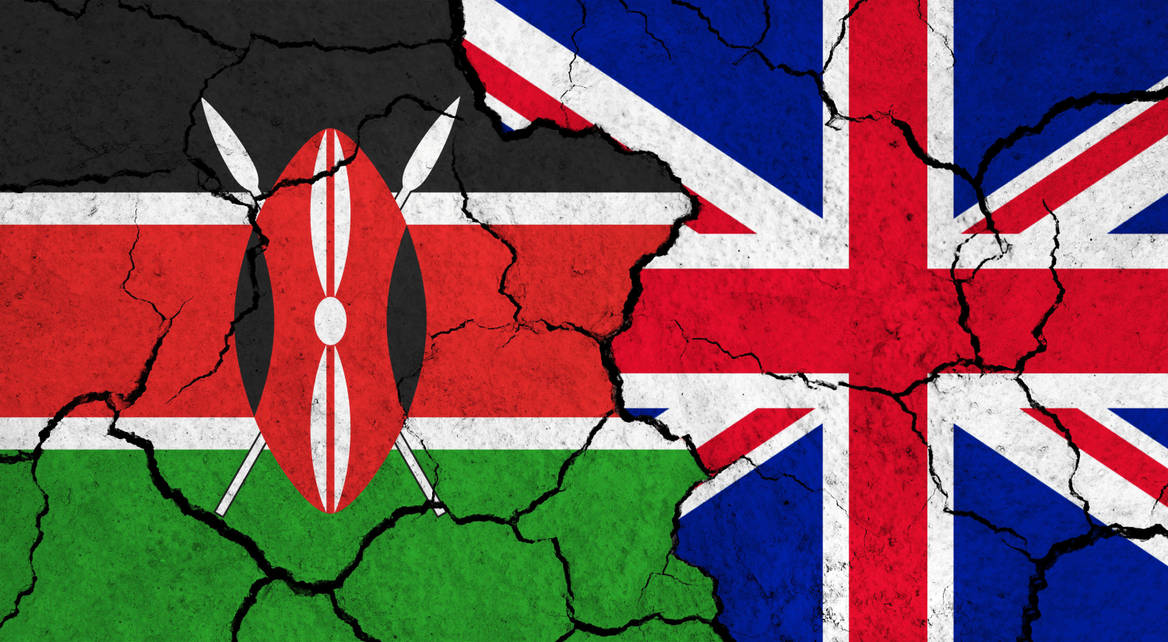Bargaining with the Green City in the Sun: An Appraisal of UK Engagement in Kenya
This paper examines the UK's efforts in Kenya and the ‘Global Britain’ agenda.
Since 2016, successive UK governments have spoken of an outward looking, collaborative and influential post-Brexit Britain. A series of speeches and policy statements have emphasised the need to pursue future prosperity through overseas engagements, building on investments in diplomacy, trade, defence and development aid. In March 2021, the UK government published its Integrated Review of Security, Defence, Development and Foreign Policy, reiterating similar themes and referencing eastern Africa as a theatre where the UK should maintain or increase its focus.
Against this backdrop, a RUSI research team examined how the UK has deployed its development, defence and diplomacy toolkit in the region since 2015. The project, entitled ‘Furthering Global Britain? Reviewing the Foreign Policy Effect of UK Engagement in East Africa’, identified factors that help and hinder the UK in the pursuit of its (erstwhile) ‘Global Britain’ agenda across Kenya, Ethiopia, Somalia and Sudan. It tested common assertions about the effects of Brexit, reductions in the UK aid budget, and the merger of two government departments – the Department for International Development (DFID) and the Foreign & Commonwealth Office (FCO) – alongside any wider enablers and constraints.
This paper sets out findings on the UK’s activities in Kenya from 2015 to 2022. As a vital commercial hub, regular recipient of British ‘aid-for-trade’ programmes, and one of the few countries name-checked in both the Integrated Review and the International Development Strategy, Kenya remains an enduring priority for UK foreign policy. Grounded in shared history, language, economics and security, the relationship was recently formalised by a new Strategic Partnership (2020–25), reflecting a raft of bilateral interests spanning ‘mutual prosperity’, stability, sustainable development, global leadership on climate issues, and ‘productive alliances’ at an individual and institutional level. Similarly, Nairobi occupies a crucial role in UK military thinking, with the 2021 Defence Command Paper outlining the possibility of an ‘enhanced presence’, and value of long-running cooperation.
Clearly, UK engagement has delivered significant results, not least improvements in Kenya’s social infrastructure, public services and humanitarian outcomes. Adept programming, contextual knowledge and networking via the British High Commission (BHC) have enabled successful collaboration with other donors and contributed towards – or driven – numerous examples of positive change, from educational reforms to electoral monitoring.
But the realities of this longstanding relationship are complex, with historical ties offering both benefit and burden. Despite close alignment, political and cultural familiarity should not necessarily be conflated with trust, influence or (automatic) diplomatic capital. Fallout from electoral violence in 2013 and subsequent International Criminal Court charges exposed how quickly claims of neo-colonialism can be instrumentalised against British interference. Concurrently, Kenya’s economic independence, burgeoning donor landscape and role in countering Al-Shabaab has weakened the broader resonance of Western conditionalities. Beneath tropes of democratisation and ‘open societies’, UK interventions on governance issues seem more measured, with a commensurate shift in focus from civil society organisations (CSOs) to State House. While not universal – the BHC continues to work alongside and fund civic groups, and support peacebuilding, accountability and police reform – much of the coverage is increasingly technical and incremental, in part to avoid infringing on elite preferences.
Brexit did not automatically impact day-to-day operations. The UK’s development expertise, longstanding relationships, economic weight and strategic investments still provide clout among international donors. But the transition has deprived UK officials of valuable strategic cover on areas of policy dialogue that are sensitive to push unilaterally as the former colonial power. Diminishing aid budgets, the DFID/FCO merger and Kenya’s own bargaining power also speak to a wider shift in the logic and terms of bilateral engagement. ‘Global Britain’ discourse may have emphasised the centrality of trade and investment, but there is a risk this transactional relationship could precipitate open competition with larger players like China and the US. At the same time, a lack of resourcing appears to undermine the feasibility of long-term reforms, particularly if practitioners working on electoral support, for instance, cannot follow up or consolidate inherently protracted cultural, normative and structural changes. While specific focus areas, including education, appear insulated from recent funding cuts, key elements of the ‘Global Britain’ agenda have become increasingly difficult to deliver, creating confusion over the hierarchy of UK priorities. Without clarity, the UK’s role as a major commercial and political voice in Kenya, and wider role as a developmental heavyweight, may therefore be called into question.
WRITTEN BY
Michael Jones
Senior Research Fellow
Terrorism and Conflict


